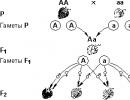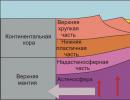After avoid is a gerund or infinitive. Verbs followed by a gerund or infinitive. The infinitive and gerund in English can be used after certain verbs, but the meaning will change.
Legend:
1 – the verb can be followed by a gerund or noun + infinitive;
2 – the verb can be followed by a gerund or infinitive, but the meaning changes;
3 – the verb can be followed by a gerund or infinitive, the meaning changes only slightly.
| Verb | Example |
| admit to acknowledge |
He admitted cheating on the test. He admitted that he cheated on the test. |
| advise advise |
The doctor generally drinking advised low-fat milk. The doctor advised me to drink low-fat milk. |
| allow allow, allow |
Ireland doesn't allow smoking in bars. In Ireland, smoking is not allowed in bars. |
| anticipate expect, count |
I anticipated arriving late. I expected to arrive late. |
| appreciate appreciate, be grateful |
I appreciated her helping me. I was grateful to her for helping me. |
| avoid avoid |
He avoided talking to her. He avoided talking to her. |
| begin start off |
I began learning Chinese I started learning Chinese. |
| can't bear can't stand it, can't stand it |
He can't bear having so much responsibility. He can't stand such responsibility. |
| can't help cannot be avoided, cannot be resisted |
He can't help talking so loudly. He can't help but talk so loudly. |
| can't stand can't stand it, can't stand it |
He can't stand her smoking in the office. He hates it when she smokes in the office. |
| cease suspend, stop |
The government ceased providing free healthcare. The government has stopped providing free healthcare. |
| complete finish, finish |
He completed renovating the house. He finished renovating the house. |
| consider consider, ponder |
She considered moving to New York. He is thinking about moving to New York. |
| continue continue |
He continued talking. He continued talking. |
| delay detain |
He delayed doing his taxes. He was late in paying his taxes. |
| deny deny |
He denied committing the crime. He denied committing the crime. |
| despise can't stand it, hate it |
She descriptions of waking up up early. She really doesn't like getting up early. |
| discuss discuss |
We discussed working at the company. We discussed working in this company. |
| dislike don't like, don't like |
She dislikes working after 5 PM. She doesn't like working after 5 pm. |
| don't mind don't mind, don't mind |
I don't mind helping you. I don't mind helping you. |
| encourage encourage, approve |
He encourages eating healthy foods. He approves of healthy food. |
| enjoy have fun, enjoy |
We enjoy hiking. We like walking. |
| finish finish, finish |
He finished doing his homework. He finished doing his homework. |
| forget forgetting something already accomplished or done |
I forgot giving you my book. I forgot that I gave you my book. |
| hate dislike, hate |
I hate cleaning the bathroom. I hate cleaning the bathroom. |
| involve imply, assume |
The job involves traveling to Japan once a month. This job is expected to travel to Japan once a month. |
| keep keep doing, don't stop |
She kept interrupting me. She kept interrupting me. |
| like love, like |
She likes listening to music. She likes to listen to music. |
| love love, adore |
I love swimming. I love swimming. |
| mention mention |
He mentioned going to that college. He mentioned that he was studying at that college. |
| mind object, be against |
Do you mind waiting here for a few minutes? Do you mind waiting here for a little while? |
| miss miss |
She misses living near the beach. She misses the time when she lived by the beach. |
| need need, be required |
The aquarium needs cleaning. The aquarium needs to be cleaned. |
| neglect to miss, not to do something necessary |
Sometimes she neglects doing her homework. Sometimes she doesn't do her homework. |
| permit allow, permit |
California does not permit smoking in restaurants. In California, smoking is not allowed in restaurants. |
| postpone postpone (until future times), postpone |
He postponed returning to Paris. He postponed his return to Paris. |
| practice to practice, to practice |
She practiced singing the song. She practiced singing a song. |
| prefer prefer |
He prefers sitting at the back of the movie theater. At the cinema, he prefers to sit in the back rows. |
| propose suggest |
I having proposed lunch at the beach. I suggested we have lunch on the beach. |
| quit stop, stop, give up |
She quit worrying about the problem. She stopped worrying about this problem. |
| recall remember, resurrect (in memory) |
Tom remembered using his credit card at the store. Tom remembered using his credit card at the store. |
| recollect remember, recall |
She recollected living in Kenya. She remembered living in Kenya. |
| recommend recommend, advise |
Tony recommended taking the train. Tony advised going by train. |
| regret regret, regret (about something done) |
She regretted saying that. She regretted saying that. |
| remember remember, recall (about what has already happened) |
I remember telling her address yesterday. I remember telling her my address yesterday. |
| require demand, be required, be necessary |
The certificate requires completing two courses. Completion of two courses is required to earn this certificate. |
| resent to be indignant, to be indignant |
Nick resented Debbie's being there. Nick was outraged that Debbie was there. |
| resist abstain |
He resisted asking for help. He didn't ask for help. |
| risk to risk |
He risked being caught. He risked being caught. |
| start start off |
He started studying harder. He began to study more diligently. |
| stop stop, end, complete |
She stopped working at 5 o"clock. She finishes work at 5 o'clock. |
| suggest suggest |
They suggested staying at the hotel. They offered to stay at a hotel. |
| try try, try, try |
Sam tried opening the lock with a paperclip. Sam tried to open the lock with a paper clip. |
| understand understand |
I understand his quitting. I understand why he quit. |
The two groups of verbs below can be followed either by the gerund or by the infinitive. Usually this has no effect on the meaning, but with some verbs there is a clear difference in meaning. Verbs marked * can also be followed by a that-clause.
Below are two groups of verbs that can be followed by either a gerund or an infinitive. Usually this does not affect the meaning at all, but for some verbs still have a clear effect. After verbs marked *, there can also be a that-clause (clause in a complex sentence starting with that)
A. Verbs where there is little or no difference in meaning:
B. Verbs after which the use of a gerund or infinitive (almost) does not change the meaning
Notes: Notes:
1. Allow is used in these two patterns:
1. Verb Allow (=allow, allow) used in two designs:
a. Allow + object + to-infinitive:
A.Allow + object + to-infinitive:
- Her parents allowed her to go to the party.
- Her parents allowed her to go to the party
b. Allow + gerund:
b. Allow + gerund:
- Her parents don't allow smoking in the house.
- Her parents don't allow her to smoke at home (= ....smoking at home)
2. Deserve + gerund is not very common, but is mainly used with passive constructions or where there is a passive meaning:
2. Deserve = to deserve, to be worthy of something. Design Deserve +gerund occurs infrequently, mainly with the passive (passive) voice or in the passive sense:
- Your proposals deserve being considered in detail.
- Your proposals deserve detailed consideration
- These ideas deserve discussion.(= to be discussed).
- These ideas deserve discussion (=to be discussed)
3. The verbs hate, love, like, prefer are usually followed by a gerund when the meaning is general, and by a to-infinitive when they refer to a particular time or situation. You must always use the to-infinitive with the expressions "would love to", "would hate to", etc.
3. After verbs hate (=hate), love(=love), like(=I like) , prefer(=prefer) put a gerund if these verbs have general meaning . If they relate to a specific time and place, then after them they put to-infinitive. After expressions"would love to"(= I would really like...), "would hate to"(= would not like to at all...) always use only infinitive
Compare: Compare:
- I hate to tell you, but Uncle Jim is coming this weekend.
- I really hate to tell you this, but Uncle Jim is coming to visit us this weekend.
- I hate looking after elderly relatives!
- I really don't like caring for elderly relatives.
- I love dancing.
- I love to dance
- I would love to dance with you.
- I would like to (c)dance with you
Gerund and Infinitive
Shares
Gerund.
A gerund in English is a non-finite form of a verb with a suffix — ing. The syntactic functions of the gerund are close to the functions of the noun and verb. The gerund carries a connotation of the meaning of the process.
For example:
Our team leader encouragesworking
overtime.
Our team leader approves of working overtime.
Do you likeskating ? Do you like ice skating?
There is no gerund form in Russian, so its meaning is conveyed either by a noun, or an infinitive, or a gerund, or a verb in the personal form and a subordinate clause.
For example:
Reading English books every day will improve your knowledge of the language.
Reading English books every day will improve your language skills.
I remember hearing this song in my childhood.
I remember hearing this song as a child.
Gerund is used:
1. As a noun.
Walking is a good exercise. Walking is good exercise
2. After I'm busy, It's no use, It's (no) good, It's (not) worth, can't help, there's no point (in), can't stand, have difficulty (in), in addition to, as well as, have trouble, have a hard/difficult time.
She had difficulty finding his way back.
She may have trouble finding her way back.
3. After prepositions.
He left the shop without paying so he was accused of stealing.
He left the store without paying, so he was accused of theft.
4. After spend/waste (time, money etc).
She spends her free time digging the garden.
She spends her free time digging up the garden.
5. After certain verbs.
I enjoy reading.I like reading.
Infinitive in English.
An infinitive is also an impersonal form of a verb in English, which is formed using the base form of the verb and a particle to.
I like Ann, but I think she tends to talk too much. I like Anne, but I think she talks too much.
They seem to have plenty of money. They seem to have a lot of money.
Infinitive is used:
1. To express purpose.
She went to university to become a doctor.
She went to university to becomedoctor.
2. After certain adjectives ( happy, glad, sorry etc).
He was happy to win the prize.
He was happy that he won the prize.
3. After I would like/would love/would prefer.
I would like to see the manager.
I'd like to see a manager.
4. After certain nouns.
What a surprise to see you here.
What a surprise to see you here.
5. After too/enough.
She is too young to have her own house.
She is too young to have her own home.
6. After certain verbs.
It was late, so I decided to take a taxi home.
It was too late, so I decided to take a taxi.
The infinitive and gerund in English can be used after certain verbs, but the meaning will change.
| Verb | Gerund | Infinitive |
| Forget | Iforgot
meeting
him.
I forgot I met him. |
Iforgot
to meet
him.
I forgot to meet him. |
| Remember | She remembered visiting her grandmother. She remembered visiting her grandmother. |
She remembered to visit her grandmother. She remembered that she needed to visit her grandmother. |
| Stop | Istopped
calling
you.
I stopped calling you (maybe we had a fight). |
Istopped
to call
you.
I stopped to call you (with the purpose of calling). |
| Try | Itried
opening
the window.
I tried to open the window (it was hot in the room, I tried to openwindow as an experiment,but it did not help). |
Itried
to open
the window.
I tried (made an effort) to open the window (but couldn’t). |
| Regret | I regret promising to help you. I regret that I promised to help you. |
Iregret
to tell
you that we can't help.
I regret to tell you that we cannot help. |
| Quit | She
quit
working
here.
She stopped working here. |
She
quit
to work
here.
She left her job to work here. |
The infinitive and gerund can be used after certain verbs without losing their meaning.
For example:
She can’t stand working the late shift.
She can’t stand to work the late shift.
She tolerate Not Maybe workVnight shift.
A foreign language is complicated not only by its special phonetic and lexical systems, but also, for the most part, by grammatical categories, especially when they do not have a corresponding analogue in native speech. Today we are waiting for one of the most difficult topics - gerunds and infinitives in English. We will diligently try to understand what role these grammatical structures play, we will figure out where the border of their sphere of use lies, and we will consolidate the assimilation of information by completing the exercise. The material is voluminous and contains many points that require detailed attention and memorization, so be prepared for thorough work. Let's get started!
Gerund vs. Infinitive - differences in application
Let's start by defining the meaning of these categories.
Infinitive – indefinite form of verbs denoting actions; the basic stage for the formation of all other verb constructions. The main question for this grammatical unit: what to do?
Gerund – an impersonal verb form that takes on some of the characteristics of a noun; expresses action processes. Interrogative combination for the following expressions: doing what?
The logical conclusion from these definitions is that the use of the infinitive and gerund is dictated by the desire to indicate some action. In addition, both concepts do not vary in numbers and persons, and do not have a mood category. However, even at first acquaintance you can find differences in their functions:
- Denoting an action with means implies the brevity of the event. The gerund is associated with more general concepts and processes extended over time.
- As a rule, infinitive actions, by their purpose, relate to the future tense, since they are a certain goal. Accordingly, processes most often express the present or the past.
- The infinitive has a neutral meaning, while the use of the gerund is dictated by the fact that the interlocutor perceives the specified actions as a specific case. Therefore, in such sentences one can often find circumstances related to the situation.
- Due to the fact that the English language always strives for simplification, in modern speech there is a tendency to replace complex –ing forms with infinitives.
When solving exercises on infinitives and gerunds, it is important to remember that the tense constructions of these grammatical categories are also different. We give examples of them in a general table.
| Tense | Infinitive | Gerund | ||
| Active | Passive | Active | Passive | |
| Simple | to do | to be done | doing | being done |
| Perfect | to have done | to have been done | having done | having been done |
| Continuous | to be doing | |||
| Perfect Continuous | to have been doing | |||
From the table it follows that the infinitive form has much more possibilities for use. But it seems so only at first glance, because in reality everything is much more complicated.
Unfortunately, English grammar does not have a uniform rule about when it is necessary to use a gerund or an infinitive. But there are a number of exceptional cases in which only one of the forms is used. These can be both syntactic roles in a sentence and stable connections with certain verbs. In order to understand the correct use of these structures, let us compare the norms characteristic of them in another table.
| The use of gerunds and infinitives in English | ||
| № | Infinitive | Gerund |
| 1. | As a direct object, revealing the reason or purpose of an action. They came to congratulate me. They came to congratulate me. |
In the role of the subject, denoting the process as a generalized concept of action. Teaching is a stressful job. Teaching is hard work. |
| 2. | In constructions of a complex (objective) complement (objective case of a noun or place + infinitive of a verb). She knows Jack to be a cool guy. She knows Jack is a great guy. |
As an object following a preposition or phrasal verb. Excuse me for breaking your Chinese decanter. Forgive me for breaking your Chinese decanter. |
| 3. | As an action verb for “for+noun/pronoun” combinations. For her to talk with foreigners is difficult. She finds it difficult to communicate with foreigners. |
The circumstance of time in combination with prepositions. Instead of cooking a cake, she is watching a soap opera on television. Instead of making a cake, she watches some soap series on TV. |
| 4. | Predicate after adjectives. It is difficult to listen to such things about parents. It's hard to hear things like that about parents. |
As a definition after nouns with prepositions. Her way of driving is very dangerous. Her driving style is very dangerous. |
| 5. | Predicate after verbal nouns. Your decision to sell our house is unreasonable. Yoursolutionsellourhouseunreasonably. |
Predicate after words and expressions worth, don'tmind, can'thelp and etc. The film is worth seeing. This movie worth watching. |
This information is extremely important, so the table must be, if not memorized, then at least printed out and carried with you during the practical exercise.
It is no secret that both the gerund and the infinitive have stable connections with some verbs. There are so many such examples that they will require a separate table.
| Verb combinations | ||
| № | Infinitive | Gerund |
| 1. | Verbs of thinking and feeling processes: watch, expect, hear, hope, choose, notice, decide
etc. Moreover, with some verbs the infinitive used without the particle to. We heard Nick say that. We heard Nick say it. I hope to pass the exam. IHopepassthisexam. |
Expressing emotional feelings that are constantly felt: hate, dislike (like), can’t bear, detest, can’t stand
.
I detest cleaning and cutting fish. I hate cleaning and cutting fish. My father likes smoking these cigars. My father loves to smoke these cigars. |
| 2. | Verbs of planning, desires, preferences : intend, wish, manage, want, desire, plan, mean, prepare, would like
.
They wanted to become actresses They wanted to become actresses. You managed to learn English. To youmanagedlearnEnglish. |
Verbs of gratitude, forgiveness, acceptance, recognition: thank you
forgive
, admit
, excuse
.
Forgive my talking about this case. Forgive my chatter about this incident. My daughter admitted writing that letter. My daughter admitted that she wrote that letter. |
| 3. | Modal and auxiliary verbs: do, will, shall, can, may, have to, would, should, must, keep
etc. What should I do ? What should I do? He can't play a guitar. He can play on guitar. |
Suggestions, opportunities, necessity: recommend
, advise
, permit
, propose , allow
.
She recommends swimming for two hours. They proposed celebrating my birthday in their house. They offered to celebrate my birthday at their house. |
| 4. | Transmission of direct speech: agree, propose, offer, arrange, promise.
She agreed to leave Moscow. She agreed to leave Moscow. They promise to call me tomorrow. Theypromisecallto meTomorrow. |
Lengthy processes: begin, finish, get up, resume, stop, cease
.
It began snowing again. Againbeganfallsnow. She ceased singing a year and a half ago. She stopped singing about a year and a half ago. |
We learned how modern English distinguishes between gerunds and infinitives. But it’s still too early to do the exercises, since we have not considered one important point - the interaction of both forms with the same verbs. Sometimes, this is a positive fact that allows you to use both categories without changing the meaning. But there are cases when the meaning of a phrase is radically different. Let's consider them.
Gerund and infinitive in English with common verbs
In order to clearly show the dependence of the context on the grammatical structure used, we will also present examples of such situations in the form of a summary table.
| Different contexts | ||
| Verbs | Infinitive | Gerund |
| stop | We stopped to talk
.
We stopped to talk. Direct object indicating the reason: why did you stop? (to do what?) – talk. |
We stopped talking
.
We stopped communicating. Ending the process. Stopped what? - communication. (doing what? – communication) |
| remember | Remember to
send
this postcard to Granny. Remember to send this postcard to grandma. Action is related to the present or future. |
I remember talking
with her for the first time. I remember talking to her for the first time. Action is connected to the past. |
| forget | Don't forget to call
your father! Don't forget to call your father! |
She will never forget taking
her first exam. She will never forget passing her first exam. Event of the past. |
| regret | I regret to say
that he isn’t your brother. I'm sorry to say, but he is not your brother. Regret about the present/future. |
We regret not saying
it. We're sorry we didn't say that. Regret about the past. |
| need | We want to wash
our car. We want to wash our car. |
This car needs washing
.
The car needs washing. The emphasis is on the state of the object, while it is not known whether the action will be performed. The expression has a passive meaning, despite the construction of the active voice. |
Now you can confidently perform exercises on gerunds and infinitives used in English. Good luck in practicing the acquired knowledge!
Views: 830
Many English language learners use the term " gerund"causes sacred horror (it is even more terrible than "!), because there is no such concept in the Russian language. In this post we will not seriously delve into all the intricacies of English grammar. Our task is to get acquainted with this phenomenon and find out what kind of beast this is - the gerund (the gerund) and how we can eat it correctly, or rather use it in speech.
What is a gerund?
There are active and passive, simple and perfect gerunds. We will limit ourselves to the simple active, since this form is most often used in speech.
Google shortcode
A simple gerund is nothing more than form verb+ing , which is something between a verb and a noun. For example, the English phrase I like swimming can be translated in two ways: I like to swim And I like swimming.
- She was thinking of buying a new house. She was thinking about buying a new house/about buying a new house.
- I hate getting up early, but I have to. – I hate getting up early / getting up early, but I have to
- The place is worth visiting. – This place is worth visiting / is worth visiting.
What do you need to know about gerunds?
- He gave up smoking a few years ago. – He quit smoking several years ago.
- Though he was tired, he kept on walking. - Although he was tired, he continued to walk
- Don't be nervous! Stop biting your nails. - Do not worry! Stop biting your nails!
- Do you like cooking — Oh, I hate cooking! – Do you like to cook? - Oh, I hate cooking!
- I don't remember locking the door. I think I'll go back and check it. “I don’t remember if I closed the door.” I think I need to go and check.

- My friend succeeded in translating this difficult text. – My friend succeeded in translating the text.
- I am looking forward to going to holiday - I’m waiting - I can’t wait to go on vacation.
- He has always dreamed of visiting Europe. – He always dreamed of visiting Europe.
- The cold weather prevented the girls from going for long walks. – The cold weather prevented the girls from taking long walks.
- He’ll never agree to them going on that dangerous voyage. “He will never agree for them to go on this dangerous trip.”
- Her mother didn’t approve of her drinking so much coffee. Her mother doesn't approve of her drinking so much coffee.
- I don’t feel like seeing him. – I don’t want to see him.
- All the happiness of my life depends on your loving me. - The happiness of my whole life depends on your love for me.
- I insist on telling him the truth! “I insist on telling him the truth.”
- I stretched my hand to prevent her from falling. “I held out my hand to stop her from falling.
Verbs that can be followed by both a gerund and an infinitive

So, if you remember after which verbs and phrases the form is used verb+ing, you won't have any problems with the gerund!






